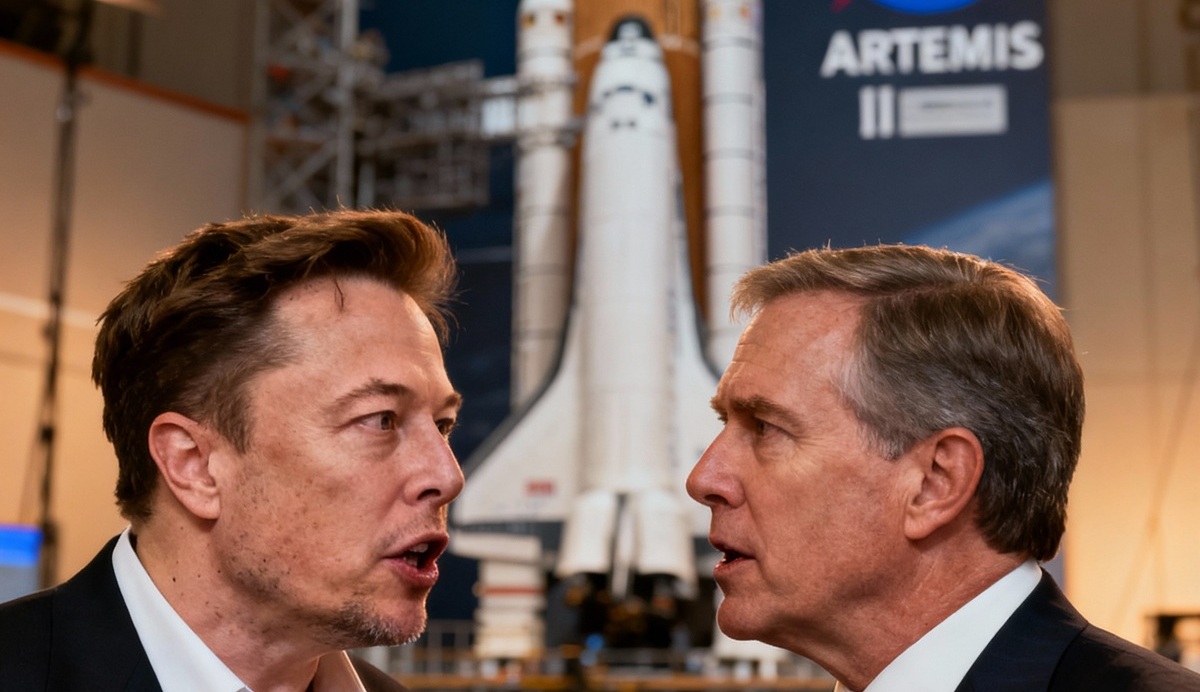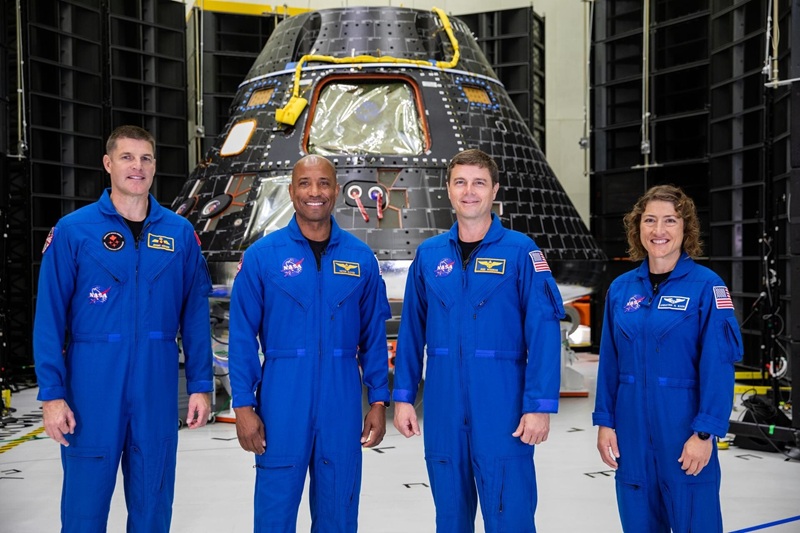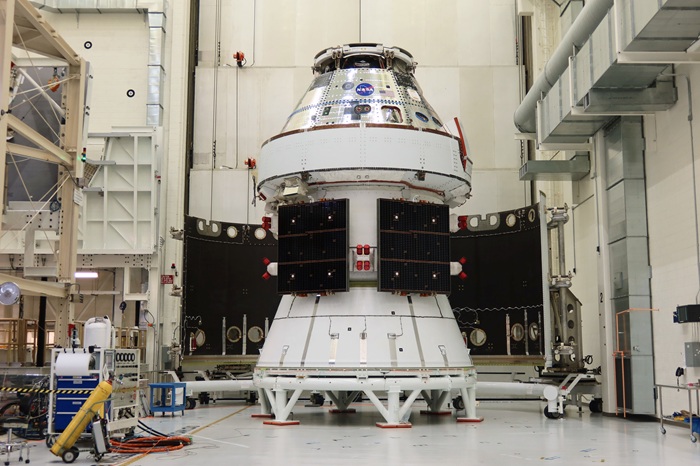A deep rift has opened between NASA and SpaceX over the future of America’s moon-landing ambitions, following a public war of words between SpaceX founder Elon Musk and acting NASA Administrator Sean Duffy. The controversy, now being called the most explosive rift in the history of public-private space cooperation, threatens to derail the Artemis III mission — the United States’ next planned crewed moon landing.
Musk-Duffy Showdown Turns Public
The feud erupted after Sean Duffy publicly accused SpaceX of falling behind schedule on its $2.9 billion lunar lander contract for Artemis III, slated to return American astronauts to the lunar surface in 2027. Duffy declared in a CNBC interview that NASA would “reopen competition” for the Artemis III lander if delays persisted, signaling that Jeff Bezos’s Blue Origin and other contractors might be invited to submit revised bids.
Elon Musk responded within hours on X (formerly Twitter), unleashing one of his harshest tirades yet against a U.S. government official. The billionaire accused Duffy of “trying to kill NASA,” mocked his intelligence, and referred to him as “Sean Dummy” — an insult that instantly trended online. Musk also posted a poll asking his followers, “Should someone whose biggest claim to fame is climbing trees be running NASA?” — a jab at Duffy’s background as a competitive speed climber.
Contract Dispute and Political Fallout
NASA has contracted SpaceX’s Starship vehicle as the lunar lander for Artemis III, awarding the company a $2.9 billion deal in 2021 after a highly contested procurement process. The spacecraft is meant to dock in lunar orbit and deliver astronauts from NASA’s Orion capsule to the Moon’s surface. However, engine-testing issues, hardware explosions, and lengthy safety reviews delayed SpaceX’s progress, forcing repeated mission schedule revisions.
In his media appearances, Duffy said SpaceX was “behind schedule” and warned that continued slippage threatened to let China reach the Moon first. “We are in a race we didn’t choose,” he told Fox & Friends on October 20, adding that NASA would reopen bids “to ensure we have every tool available to get America back to the Moon before the decade’s end”.
Musk fired back that Duffy’s leadership was “a disaster wrapped in incompetence” and accused the acting administrator of undermining private-sector innovation. The SpaceX CEO insisted Starship development was on track for commercial and lunar operations and claimed “bureaucratic mismanagement inside NASA” — not his company’s performance — was the real cause of delays.
Trump Administration Tensions
The spat also exposes broader fissures within President Trump’s administration and its approach to managing NASA’s leadership. Sean Duffy, previously Transportation Secretary, has been serving as acting administrator since early 2025, after Trump’s initial pick — billionaire pilot and Musk ally Jared Isaacman — withdrew from confirmation. According to reports, the President is now privately reconsidering appointing Isaacman after Musk’s attacks escalated.
Duffy’s remarks coincided with congressional scrutiny over NASA’s budget. Lawmakers have questioned layoffs under Musk’s earlier tenure at the Department of Government Efficiency (DOGE), which saw almost 4,000 NASA employees accept buyouts since 2021. Critics argue those cuts weakened NASA’s engineering and mission assurance capabilities, leaving Artemis III understaffed and vulnerable to further delays.
Race Against China and Blue Origin’s Opportunity
At stake is more than a corporate rivalry—it’s the United States’ standing in an intensifying global space race. China has committed to landing its taikonauts on the lunar surface by 2030, and Beijing’s state media has already cast doubt on whether the U.S. can meet its timetable. Duffy cited that competition as an urgent motivator for diversifying NASA’s lunar partners: “We cannot afford bottlenecks when the future of American leadership in space hangs in the balance,” he said.
Blue Origin, which holds a NASA contract for later Artemis missions using its Blue Moon lander, has publicly expressed readiness to “step in if necessary.” Space industry analysts, however, caution that even if NASA reopens bidding, no other company could feasibly match SpaceX’s current scale of flight testing before 2027.
Musk, in turn, warned that awarding new contracts would “waste taxpayer money” and “introduce chaos when focus is needed.” He argued that Starship, despite its rapid prototyping approach, remains the only viable path to achieving sustainable lunar transport and future Mars missions.
NASA’s Dilemma
The confrontation leaves NASA in a precarious position. Officially, the agency has declined to comment on Musk’s insults but acknowledged it is “reviewing contract performance benchmarks” across its Artemis partners. Internally, senior engineers have expressed frustration at political interference and uncertainty over leadership stability.
A senior NASA official told Reuters under condition of anonymity that “the feud has created morale issues within the Artemis III team” and that “some engineers feel their work is being overshadowed by politics rather than science”. Others worry the episode could unsettle international cooperation with Artemis partners like the European Space Agency and Japan’s JAXA.
What’s Next for Artemis III
Under current planning, Artemis III aims to land two astronauts — including the first woman — near the Moon’s south pole using a modified version of SpaceX’s Starship HLS (Human Landing System). NASA hopes to conduct the first integrated test flight combining Orion, SLS, and Starship systems by late 2026. Any further delay in Starship’s certification, however, would push the landing beyond 2027, heightening pressure on both NASA and SpaceX as China’s lunar program advances.
Industry observers describe the situation as a defining moment for America’s model of public-private cooperation in space. “This is not just a squabble between two personalities—it’s a philosophical battle over how space exploration should be managed,” said aerospace analyst Dr. Karen Lang of the Center for Strategic Aerospace Studies. “Musk believes flexibility and iteration will get us there; Duffy believes accountability and oversight are equally critical.”
Broader Implications
The controversy has already spilled into Capitol Hill and beyond. Several Republican lawmakers have come to Musk’s defense, accusing Duffy of politicizing NASA’s operations, while Democrats have criticized Musk’s “unhinged attacks” on a government official. Online discourse has turned bitter, with Musk supporters portraying him as the only visionary capable of returning Americans to the Moon and his detractors warning of “corporate control over public missions.”
The administration must now decide whether to stand by Duffy’s competitive approach or risk alienating SpaceX, which plays a crucial role not just in Artemis but also in ferrying astronauts to the ISS and deploying national security payloads. Experts say the outcome could reshape U.S. space policy for years.
The Future of Collaboration
Despite Musk’s fury, NASA insiders say discussions with SpaceX have not ceased entirely. Technical review meetings scheduled for late October will evaluate updated timelines for Starship test flights and ensure compliance with next year’s certification targets. The October 29 deadline Duffy set for “acceleration proposals” remains in effect.
Blue Origin and other companies, including Lockheed Martin and Dynetics, reportedly plan to submit “expressions of interest” in the reopened competition. If NASA proceeds with new contracts, a supplemental Artemis III lander provider could be announced before the end of 2025.
A Struggle for Leadership
Many analysts see the episode as symbolic of the deeper question of who truly leads America’s space program: government or private enterprise. SpaceX has revolutionized launch economics with reusable rockets and commands unmatched global recognition. Yet NASA remains the steward of national space goals and safety standards. The Musk-Duffy clash underscores how blurred those lines have become in an era where billionaires, not bureaucrats, increasingly drive the pace of exploration.
For now, both sides appear unwilling to retreat. Musk continues to mock Duffy publicly while emphasizing SpaceX’s next Starship test flight from Texas — a mission he claims will “prove everyone wrong.” Duffy, meanwhile, insists on keeping competition open “until we can be sure the American flag will fly again on the lunar surface.”
Whether the Artemis III moon landing lifts off on time may depend less on rocket science and more on diplomacy between two men whose visions — though both ambitious — are now locked in orbiting conflict.





